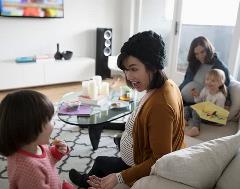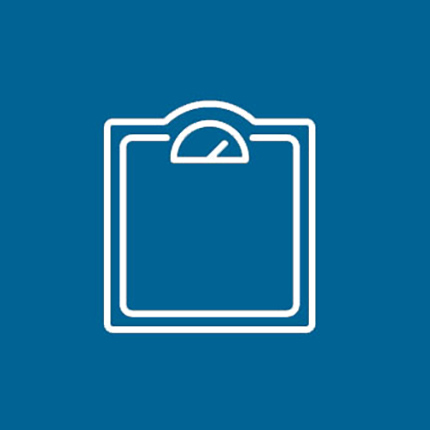Healthy Living
Speech and Language Milestones

In the first three years of life, children have an intensive period of absorbing sights and sounds, including language. Yet speech and language develop more quickly for some children and more slowly for others. As a parent, how do you know if your child is on track?
If you suspect that your child has a speech delay or difficulty understanding or communicating, there are resources available that can help.
Below is a development checklist for the first three years from the National Institute of Deafness and Other Communication Disorders.
|
Birth to 3 Months |
4 to 6 Months |
7 Months to 1 Year |
1 to 2 Years |
2 to 3 Years |
|
Reacts to loud sounds |
Follows sounds with his or her eyes |
Enjoys playing peek-a-boo and pat-a-cake |
Knows a few parts of the body and can point to them |
Has a word for almost everything |
|
Calms down or smiles when spoken to |
Responds to changes in the tone of your voice |
Turns and looks in the direction of sounds |
Follows simple commands and understands simple questions |
Uses two- or three-word phrases to talk about and ask for things |
|
Recognizes your voice and calms if crying |
Notices toys that make sounds |
Listens when spoken to |
Enjoys simple stories, songs and rhymes |
Uses k, g, f, t, d and n sounds |
|
Starts or stops sucking in response to sound when feeding |
Pays attention to music |
Understands words for common items such as “cup,” “shoe,” “juice” |
Points to pictures, when named, in books |
Speaks in a way that is understood by family members and friends |
|
Coos and makes pleasure sounds |
Babbles and uses many different sounds, such as with p, b and m |
Responds to requests (“come here”) |
Acquires new words on a regular basis |
Names objects to ask for them or to direct attention to them |
|
Has a special way of crying for different needs |
Laughs |
Babbles using long and short groups of sounds |
Uses some one- or two-word questions |
|
|
Smiles when he or she sees you |
Babbles when excited or unhappy |
Babbles to get and keep attention |
Puts two words together |
|
|
|
Makes gurgling sounds when alone or playing with you |
Communicates with gestures such as waving or holding up arms |
Uses many different consonant sounds at beginning of words |
|
|
|
|
Imitates different speech sounds |
|
|
|
|
|
Has one or two words by 1st birthday (hi, dog, mama, dada) |
|
|
https://medlineplus.gov/speechandlanguageproblemsinchildren.html


